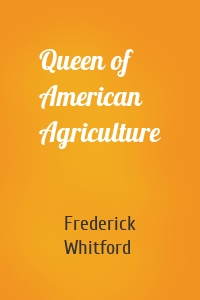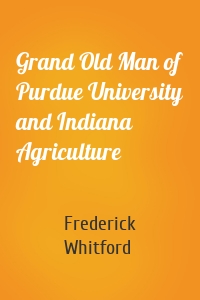Frederick Whitford
5 кн.
Scattering the Seeds of Knowledge
Today, Purdue Extension delivers practical, research-based information that transforms lives and livelihoods. Tailored to the needs of Indiana, its current programs include Agriculture and Natural Resources, Health and Human Sciences, Economic and Community Development, and 4-H Youth Development. However, today's success is built on over a century of visionary hard work and outreach. Scattering the Seeds of Knowledge: The Words and Works of Indiana's Pioneer County Extension Agents...
| Автор | Frederick Whitford |
Queen of American Agriculture
Virginia Claypool Meredith's role in directly managing the affairs of a large and prosperous farm in east-central Indiana opened doors that were often closed to women in late nineteenth century America. Her status allowed her to campaign for the education of women, in general, and rural women, in particular. While striving to change society's expectations for women, she also gave voice to the important role of women in the home. A lifetime of dedication made Virginia Meredith...
| Автор | Frederick Whitford |
Grand Old Man of Purdue University...
William Carol Latta was the 13th member of the Purdue faculty. He became the driving force behind Purdue's world-famous School of Agriculture and initiated extension services that have lasted for more than a century. In 1890, he laid out the first permanent soil fertility field experiments, inaugurating a system of research considered one of the best in the country at that time. He administered Purdue's School of Agriculture until 1907.
| Автор | Frederick Whitford |
For the Good of the Farmer
The key role that farming plays in the economy of Indiana today owes much to the work of John Harrison Skinner (1874-1942). Skinner was a pioneering educator and administrator who transformed the study of agriculture at Purdue University during the first decades of the twentieth century. From humble origins, occupying one building and 150 acres at the start of his career, the agriculture program grew to spread over ten buildings and 1,000 acres by the end of his tenure as its first dean. A...
| Автор | Frederick Whitford |






